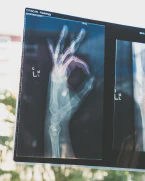Grandmothers as Mental Health Warriors: How Theyre Fighting Depression and Saving Lives

Addressing the Global Health Issue of Depression in HIV-Positive Individuals
Farai’s story of living with HIV and depression highlights a major global health issue that affects millions of people worldwide. According to the World Health Organization, over 300 million people suffer from depression, or kufungisisa as it is known in Farai’s country, Zimbabwe. Depression can be a side effect of living with a chronic illness like HIV, and Farai’s struggle with depression highlights the urgent need for accessible mental health services in low- and middle-income countries.
Unfortunately, the ratio of psychiatrists to the population in many of these countries is one for every one and a half million people, making it nearly impossible for those who need mental health services to access them. This shortage of resources can have devastating consequences, as depression can lead to suicide. The World Health Organization reports that every 40 seconds, someone somewhere in the world commits suicide because they are unhappy, largely due to depression or kufungisisa.
The impact of depression on individuals with HIV can be especially significant. Depression can lead to a lower adherence to antiretroviral therapy, which is crucial for managing HIV. Additionally, depression can exacerbate the negative impacts of HIV stigma, which can contribute to social isolation and loneliness.
Addressing the global health issue of depression in HIV-positive individuals requires innovative approaches. One such approach is the Friendship Bench program, which trains grandmothers in Zimbabwe to provide evidence-based talk therapy to individuals struggling with depression. This program has been successful in reducing symptoms of depression and suicidal ideation in those who receive treatment from grandmothers.
The impact of the Friendship Bench program is inspiring, and its success shows that addressing mental health issues in low- and middle-income countries requires creative solutions. It is important to continue advocating for increased resources for mental health services globally to ensure that individuals like Farai have access to the care they need.
The Global Prevalence of Depression: A Major Public Health Concern
Depression is a major public health concern that affects millions of people worldwide. The World Health Organization estimates that over 300 million people suffer from depression, making it the leading cause of disability worldwide. Depression can affect anyone, regardless of age, gender, or socioeconomic status.
In Zimbabwe, depression is known as kufungisisa, which means “thinking too much.” This local term highlights the cultural nuances of depression and how it is experienced differently across the world. However, despite these differences, the impact of depression on individuals and communities is universal.
Depression can lead to a range of negative health outcomes, including substance abuse, chronic pain, and decreased quality of life. Additionally, depression can lead to suicide, which is a significant public health concern. The World Health Organization reports that every 40 seconds, someone somewhere in the world commits suicide because they are unhappy, largely due to depression.
Despite the significant impact of depression on individuals and communities, access to mental health services is limited in many parts of the world. The shortage of mental health professionals in low- and middle-income countries means that most individuals who need mental health services will not receive them.
However, innovative solutions like the Friendship Bench program in Zimbabwe are working to address this issue. By training grandmothers to provide evidence-based talk therapy to individuals struggling with depression, this program has been successful in reducing symptoms of depression and suicidal ideation in those who receive treatment from grandmothers.
It is crucial that we continue to prioritize mental health as a global public health issue. By raising awareness about the impact of depression and advocating for increased resources for mental health services, we can ensure that individuals around the world have access to the care they need.
The Link Between Depression and Suicide: A Significant Global Health Issue
Depression can have severe consequences, including suicide, which is a significant public health concern. Suicide is a leading cause of death in some age groups and low- and middle-income countries. The World Health Organization reports that every 40 seconds, someone somewhere in the world commits suicide because they are unhappy, largely due to depression or other mental health disorders.
Individuals with depression are at a higher risk of suicide than those without. The impact of depression on suicide risk is significant, as depression can exacerbate feelings of hopelessness, isolation, and despair. Additionally, depression can lead to a decreased ability to cope with life stressors, which can increase the risk of suicidal ideation and attempts.
Access to mental health services is crucial in preventing suicide, but unfortunately, many low- and middle-income countries face significant barriers in providing these services. The shortage of mental health professionals in these countries means that most individuals who need mental health services will not receive them. This lack of resources can lead to devastating consequences, including suicide.
However, innovative solutions like the Friendship Bench program in Zimbabwe are working to address this issue. By training grandmothers to provide evidence-based talk therapy to individuals struggling with depression, this program has been successful in reducing symptoms of depression and suicidal ideation in those who receive treatment from grandmothers.
It is crucial that we continue to prioritize mental health and suicide prevention as global public health issues. By raising awareness about the link between depression and suicide and advocating for increased resources for mental health services, we can ensure that individuals around the world have access to the care they need to prevent suicide.
The Shortage of Mental Health Professionals: A Barrier to Accessing Care
Access to mental health services is limited in many parts of the world due to a shortage of psychiatrists and psychologists. In most low- and middle-income countries, the ratio of psychiatrists to the population is something like one for every one and a half million people. This lack of mental health professionals means that most individuals who need mental health services will not receive them.
This shortage of mental health professionals is particularly significant in rural and remote areas, where access to care is already limited. Individuals living in these areas may have to travel long distances to access mental health services, which can be costly and time-consuming. Additionally, stigma around mental health can prevent individuals from seeking care, even when it is available.
The shortage of mental health professionals is a significant barrier to accessing care, and it can have devastating consequences. Individuals who do not receive care for mental health issues may experience negative health outcomes, including increased risk of suicide, substance abuse, and decreased quality of life.
Innovative solutions like the Friendship Bench program in Zimbabwe are working to address this issue by training community members to provide evidence-based talk therapy to individuals struggling with depression. By enabling community members with the skills to provide mental health care, programs like the Friendship Bench are increasing access to care in areas where mental health professionals are scarce.
It is crucial that we continue to prioritize mental health and advocate for increased resources for mental health services. By investing in mental health care and increasing the number of mental health professionals, we can ensure that individuals around the world have access to the care they need to thrive.
Grandmothers as a Resource for Mental Health Care
Grandmothers are a reliable resource in African communities and could be trained to provide evidence-based talk therapy to individuals struggling with mental health issues. Grandmothers are present in every community and are trusted members of their communities. They are unlikely to leave their communities in search of better opportunities, making them a stable and consistent source of care.
Training grandmothers in evidence-based talk therapy would enable them to provide support to individuals struggling with depression and other mental health disorders. They could be trained in skills such as listening, empathy, and cognitive behavioral therapy. This training could be supported by digital technology such as mobile phones, which are prevalent in many African communities.
The Friendship Bench program in Zimbabwe has successfully trained grandmothers to provide evidence-based talk therapy to individuals struggling with depression. The program has been successful in reducing symptoms of depression and suicidal ideation in those who receive treatment from grandmothers.
Grandmothers have the potential to be a significant resource for mental health care in communities where mental health professionals are scarce. By leveraging the existing resources in communities, we can increase access to care and ensure that individuals struggling with mental health issues receive the support they need to thrive.
Investing in the training of grandmothers and other community members to provide mental health care can have significant benefits, including improving access to care and reducing the stigma associated with mental health. It is crucial that we continue to explore innovative solutions like the Friendship Bench program and prioritize mental health as a global public health issue.
The Success of the Friendship Bench Program
The Friendship Bench program in Zimbabwe is a model for training grandmothers in cognitive behavioral therapy and providing mental health care in communities where professional mental health services are limited. The program has been highly successful in treating depression and reducing suicidal ideation in individuals who receive treatment from grandmothers.
The Friendship Bench program was developed by a psychiatrist in Zimbabwe who realized the shortage of mental health professionals in the country and the need to leverage existing community resources to address mental health issues. The program trains grandmothers in cognitive behavioral therapy and provides them with the skills they need to listen, show empathy, and provide behavior activation and activity scheduling.
The program has been successful in treating depression and reducing suicidal ideation in individuals who receive treatment from grandmothers. According to a clinical trial, individuals who received treatment from grandmothers on the Friendship Bench remained symptom-free six months after receiving treatment. The results of the trial also showed that grandmothers were more effective at treating depression than doctors and other mental health professionals.
The Friendship Bench program has expanded to more than 70 communities in Zimbabwe, and more than 30,000 people have received treatment from grandmothers. The program has also been successful in reducing the stigma associated with mental health and increasing access to care for individuals who may not have otherwise received treatment.
The success of the Friendship Bench program highlights the potential for community-led approaches to mental health care. By leveraging existing community resources and enabling individuals with the skills they need to provide evidence-based talk therapy, we can increase access to care and ensure that individuals struggling with mental health issues receive the support they need to thrive.
Grandmothers: More Effective Than Doctors at Treating Depression
The Friendship Bench program has been highly successful in treating depression and reducing suicidal ideation in individuals who receive treatment from grandmothers. In fact, according to a clinical trial, grandmothers were more effective at treating depression than doctors and other mental health professionals.
The success of grandmothers in treating depression may be due to several factors. First, grandmothers are often highly respected members of their communities and have deep knowledge of the culture and traditions of the people they serve. Second, grandmothers have often lived through difficult times and have firsthand experience with the challenges of poverty, conflict, and isolation. This experience can help them to better understand and relate to the struggles of individuals who are experiencing depression.
Third, grandmothers are often viewed as caring and caring figures, and their ability to provide emotional support can be a powerful tool in the treatment of depression. They are also able to provide practical support, such as helping individuals to schedule activities and stay engaged in their communities.
Overall, the success of grandmothers in treating depression highlights the potential of community-led approaches to mental health care. By enabling individuals within communities to provide evidence-based talk therapy and other forms of support, we can increase access to care and ensure that individuals struggling with mental health issues receive the support they need to thrive.
Creating a Global Network of Trained Grandmothers to Reduce the Treatment Gap
The Friendship Bench program has been so successful that its founder, a psychiatrist from Zimbabwe, envisions a global network of trained grandmothers who can provide evidence-based talk therapy and other forms of support to individuals struggling with mental health issues.
Currently, the world faces a significant treatment gap for mental health disorders, particularly in low- and middle-income countries where the ratio of psychiatrists to the population is often only one for every one and a half million people. By creating a network of trained grandmothers, we could significantly increase access to care and reduce this treatment gap.
The potential benefits of such a network are enormous. There are currently more than 600 million people aged above 65 in the world, and this number is projected to increase to 1.5 billion by 2050. By training grandmothers in evidence-based talk therapy and other forms of support, we can ensure that individuals struggling with mental health issues receive the care and support they need to thrive, regardless of their age or geographic location.
Moreover, grandmothers are a reliable resource in many communities, and their involvement in mental health care can help to reduce the stigma associated with seeking treatment for mental health issues. As the success of the Friendship Bench program has shown, grandmothers are highly effective at providing emotional and practical support to individuals struggling with depression and other mental health issues.
In conclusion, creating a global network of trained grandmothers has the potential to transform mental health care and reduce the treatment gap for mental health disorders. By enabling individuals within communities to provide evidence-based talk therapy and other forms of support, we can ensure that individuals struggling with mental health issues receive the care and support they need to live fulfilling lives.
Conclusion
Depression is a global issue that affects millions of people worldwide and can have severe consequences, including suicide. Unfortunately, access to mental health services is limited in many parts of the world, particularly in low- and middle-income countries, where there is a shortage of psychiatrists and psychologists. This situation highlights the need for alternative approaches to provide effective mental health care to those who need it most.
One such approach is the Friendship Bench program, which trains grandmothers in African communities to provide evidence-based talk therapy. These grandmothers are a reliable resource in their communities and have been shown to be more effective at treating depression than doctors in a clinical trial. The success of this program has led to its expansion, with the aim of creating a global network of trained grandmothers to help reduce the treatment gap for mental health disorders.
It’s perplexing that despite the growing awareness of the importance of mental health, the treatment gap remains significant, and many people still do not have access to adequate mental health care. The story of Farai, a young mother living with HIV and depression, highlights the importance of addressing this issue and finding innovative solutions to improve access to mental health care globally.
The Friendship Bench program is a burst of hope in a bleak reality, demonstrating that even in resource-limited settings, effective mental health care can be delivered. The grandmothers in this program are a shining example of the power of community-based approaches to health care. They show us that sometimes, the most effective solutions are not found in fancy hospitals or expensive treatments but in the most unexpected places, like a park bench.
In conclusion, the Friendship Bench program has the potential to make a significant impact in improving mental health care access globally. By tapping into the power of grandmothers in communities around the world, we can bridge the gap in mental health care and provide much-needed support to those who need it most.
















